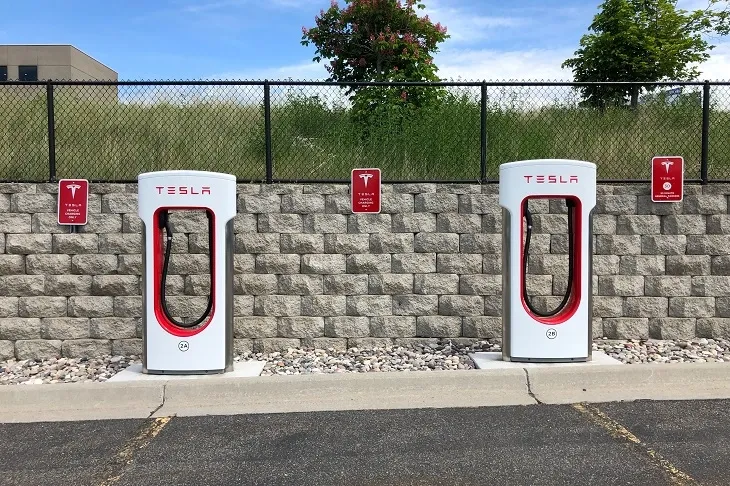Table of Contents
Duggan Flanakin
Duggan Flanakin is a Senior Policy Analyst with the Committee For A Constructive Tomorrow. A former Senior Fellow with the Texas Public Policy Foundation, Mr Flanakin authored definitive works on the creation of the Texas Commission on Environmental Quality and on environmental education in Texas. A brief history of his multifaceted career appears in his book, Infinite Galaxies: Poems from the Dugout.
“What a revoltin’ development this is!”
Chester A. Riley
An August article in the Arizona Republic asserted that, “As a new Covid variant emerges, America lifts its middle finger to the same old mandates.”
Author Phil Boas noted that, as federal officials began plans to reimpose vaccine and mask mandates, even mainstream Republican Meghan McCain responded, “Uh no, we ain’t starting this s— again.”
Oddly enough, New York Times columnist Bret Stephens provided the best explanation. Way back in his July 2021 post, “Covid misinformation comes from the top, too,” Stephens calmly explained, “The CDC vastly overstated the risks of outdoor spread of the virus.”
Despite growing public opposition, the Biden Administration has once again “urged” all Americans to get new Covid-19 boosters even as reports circulate that those who have gotten the Covid booster shots are at risk of infection from new variants. One thing is for sure – there is a great divide among Americans on trust of federal health officials.
The Biden Administration’s love of mandates – forcing people to comply whether they want to or not – extends to automobiles and fuels. In his first year of office, President Biden issued an executive order that included a goal of “50 per cent of all new passenger cars and light trucks sold in 2030 be zero-emission vehicles.”
But a June 2023 poll conducted by Harvard CAPS-Harris found that 59 per cent of Americans opposed the Biden mandate – 75 per cent of Republicans, 60 per cent of independents, and even 41 per cent of Democrats. The poll also found Americans evenly split on the $7,500 EV tax credit and on whether EVs actually reduce carbon dioxide emissions.
Perhaps the key finding in the poll was that 67 per cent of Democrats and 88 per cent of Republicans believe that gasoline-powered vehicles are more affordable than electric vehicles. In an earlier poll from the Energy Policy Institute at the University of Chicago (EPIC) and AP-NORC Center for Public Affairs Research, only 19 per cent of US adults said it was “extremely likely” or even “very likely” that their next automobile would be electric.
The disconnect between Biden’s EV policy and the American public is playing havoc with US automakers, who just two years ago “seemed to be in raptures” with Biden’s EV policy. As Biden announced his mandate, he warbled, “We’ve just got to step up – government, industry, labor working together. We have a playbook, and it’s going to work.”
One problem is the proposed new EPA tailpipe emissions limits that the agency admits will force automakers to sell two EVs for every gasoline vehicle by 2032 – an effective mandate that flies in the face of public opinion.
Only in California does this mix even seem possible. Golden Staters, just 12 per cent of Americans, bought 40 per cent of US zero-emission vehicles in 2022, with 19 per cent of purchases being EVs. And California has banned the sale of non-EVs as of 2035.
Outside California, only in heavily Democratic Washington, Oregon, Massachusetts, New Jersey, and Maryland are EV sales topping the 10 per cent level. And some 17 states that have followed California’s emission standards are unlikely to endorse the new California standard.
Despite “generous” rebates and industry price cuts, a solid mass of Americans are flatly opposed to ever buying an electric vehicle – for a growing number of reasons. Many others say they might buy one once those issues are resolved – charging station shortages, sufficient battery storage, lower real prices, quicker turnarounds on repairs, or even an end to hated mandates.
Resistance to EV mandates is growing in the United Kingdom and elsewhere, as well. UK lawmakers have mandated that 22 per cent of new car sales be EVs by 2024 and 52 per cent by 2028, with a total ban on gasoline-powered vehicles by 2030. Just one problem. Nobody wants one.
The British government has offered subsidies for EVs and home charging ports, provided tax breaks for company vehicles, and exemptions from residential parking permits. Yet over half of British drivers absolutely do not want an electric vehicle, at least without major price drops. Meanwhile, the average price of a new car in the UK has risen by 39 per cent since 2011, as wages have risen just 22 per cent.
As a result, major dealerships in the UK report most buyers want internal combustion engines, and EVs are sitting unwanted in new car lots. Automakers are complying with production mandates, but consumers are not complying with purchasing mandates even as dealers, faced with growing inventories of unsold EVs, are cutting prices for the government-favored vehicles.
Things may be even worse for new car dealers in the US. Kelley reports that America’s car dealers ended June 2023 with more than 92,000 unsold electric vehicles on their lots, up from 21,000 a year earlier. That’s 92 days’ worth of unsold EVs compared with 51 days’ worth of all new cars. This is despite a $10,000 price drop for the average EV.
The greater problem for dealers is that their automakers have required them to invest in infrastructure to sell and service EVs. This considerable added expense is not yet justified by EV sales, which are hindered by a number of factors (price, long service waits, fear of blackouts, charging times) – and some new wrinkles not previously anticipated.
Hurricane Idalia revealed that EV batteries and salt water are not good companions, as several battery-powered vehicles caught fire. Only now are we learning that residual saltwater particles left behind on flooded batteries and battery components can conduct electricity, resulting in short circuits and eventual fires. It’s funny no one ever mentioned this before. No wonder those fires broke out on ocean-going ships hauling EVs to faraway markets.
But perhaps the most “revoltin’ development” giving EVs a black eye came just last week, thanks to Energy Secretary Jennifer Granholm. To promote “how well” the nation’s EV charging infrastructure is set up, Granholm led a four-day EV caravan from Charlotte (NC) to Memphis (TN) – a luxury Cadillac Lyriq, a Ford F-150 truck, and a Chevy Bolt utility vehicle, but none of those right-wing (not union-built) Teslas shunned by the Biden Administration.
At the first charging station along their route, just outside Augusta (GA), one of the four chargers was broken, and the others were occupied. An Energy Department staffer driving an internal combustion engine vehicle parked in front of one of the working chargers to reserve a spot for Granholm’s vehicle, preventing a family with a baby on board from charging their vehicle.
The family, visibly upset, called the police to report that some nutcase was blocking their access to the charging station. However, they learned that blocking a charging station is not illegal. Even NPR reporter Camila Domonoske, who was along for the ride, admitted, “Electric cars have a road trip problem, even for the Secretary of Energy.”
As Chester A Riley (and later both Daffy Duck and The Thing) would say, “What a revoltin’ development this is!”
Today, it is clear the old catchphrase is quite appropriate for both vaccine and EV mandates.









